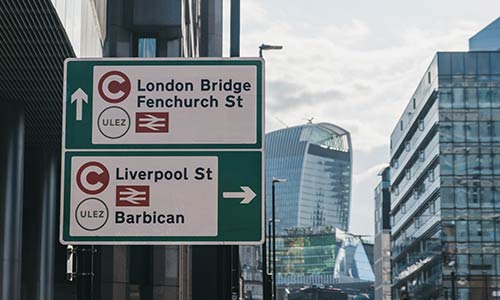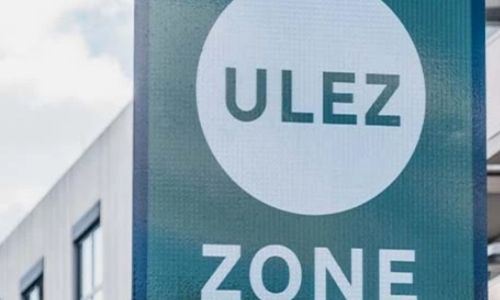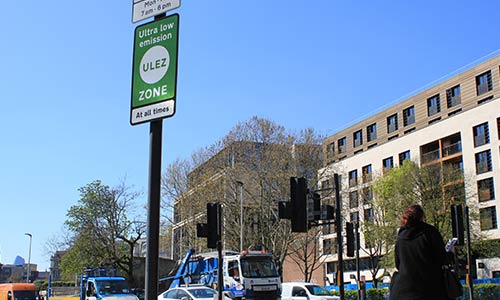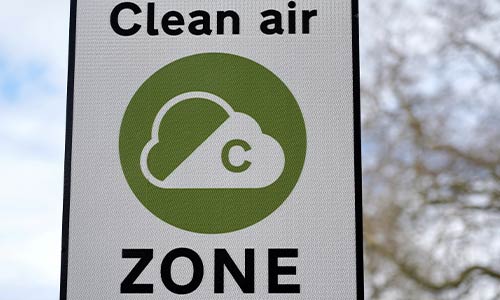
Cambridge congestion charge explained
Last updated March 31, 2023
Following the successful implementation of Congestion Charge Zones in cities such as London and Birmingham, Cambridge is expected to follow suit and implement its own Congestion Charge Zone in its city centre.
Congestion charge schemes are introduced with the aim of reducing traffic and improving air quality, by discouraging drivers from travelling within certain busy areas.
In this guide, we will explain everything that is known about the proposed Cambridge Congestion Charge Zone, including its designated area, the current deadline for implementation, which vehicles will be affected by (and exempt from) the charge, the planned charges for each vehicle type – and how the money raised could be spent.
Value your car in under 30 seconds
What is the Cambridge congestion charge?
The proposed Cambridge congestion charge is to be paid by drivers travelling within Cambridge City Centre and is designed to reduce the volume of traffic in the area.
Cambridge is one of the UK cities planning to introduce a new congestion charge, following the success of the London congestion charge and similar schemes, such as the Clean Air Zones introduced in cities such as Birmingham, Bristol, Bath, Portsmouth and Sheffield.
The Cambridge congestion charge plans were announced in 2022 and, if approved, are expected to be implemented by 2028.
What is the proposal for cars?
The Cambridge congestion charge proposals state that all private vehicle drivers will be expected to pay a fee for travelling within the city centre, with the amount charged varying depending on the type of vehicle driven.
According to the current plans, this would be a daily fee, payable by any private drivers entering the Cambridge Congestion Charge Zone between 7am and 7pm.
What is the proposal for public transport?
Part of the plan for the Cambridge congestion charge is to develop and improve public transport services within the area – and to encourage drivers to opt for more eco-friendly ways to get around the city, such as taking the bus.
It is expected that a proportion of the money raised from the congestion charge fees will be put into making public transport improvements - and offsetting the cost of running bus services to provide lower ticket prices.
Where is the Cambridge Congestion Charge Zone?
The Cambridge Congestion Charge Zone will cover the entirety of the city centre, extending out as far as Trumpington, Teversham, Newnham and King’s Hedges. The charge will apply to drivers of private vehicles who enter any part of this area, even if they do not drive into the main part of the city centre.
When is the Cambridge Congestion Charge Zone being introduced?
The Cambridge Congestion Charge Zone is expected to be implemented sometime between 2027 and 2028. Of course, as the plans were only submitted in 2022, delays and amendments are also possible.
How much will the charge be?
The proposed fee structure for the Cambridge Congestion Charge Zone is as follows:
- Private cars and motorcycles - £5 per day.
- Vans - £10 per day.
- HGVs (Heavy Goods Vehicles) - £50 per day.
How can I avoid the Cambridge congestion charge?
According to the current proposals, certain vehicles will be exempt from the Cambridge congestion charge. So far, these are:
- Emergency vehicles.
- Military vehicles.
- Disabled tax class vehicles.
- Breakdown service vehicles.
- NHS tax-exempt vehicles.
- Dial-a-ride services.
- Certain local authority operational vehicles.
This list is subject to change and has not yet been finalised. It’s worth noting that unlike many ULEZ and Clean Air Zone exemption lists, there are no exemptions planned for electric cars (or other low-emission vehicles) for the proposed Cambridge Congestion Charge Zone.
Cambridge congestion charge controversy
The congestion charge plans have come under fire from some Cambridge residents, who have pointed out that the charges will negatively impact commuters and key workers who have to travel into the city regularly. There are also concerns that the charges will impact local businesses relying on out-of-town visitors.
Are the plans going to change?
If approved, the charges are expected to be implemented between 2027 and 2028, meaning there is still a possibility that the current plans will undergo changes before the Cambridge Congestion Charge Zone is introduced.
For the latest information on the Cambridge Congestion Charge Zone, please see the Cambridge City Council website.





